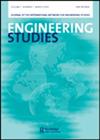工程教育科研设计的力量与政治:拯救“小N”
IF 1.3
3区 工程技术
Q2 EDUCATION, SCIENTIFIC DISCIPLINES
引用次数: 27
摘要
几十年来,美国研究人员投入了智力、财力和劳动力资源,包括对高等工程教育中持续存在的种族和性别歧视的研究,来了解少数族裔在工程领域的代表性不足。本文考虑了这一领域合法和重要研究的普遍标准,以及与小群体研究相关的持续耻辱。许多工程教育研究的生产者和消费者对“大n”的偏好带来了对人类差异的假设,包括种族、性别、残疾和其他类别的想法,这些类别通常是为了分析目的而分类的。本文询问这种认知偏好如何制定权力,显示分类学倾向如何阻止对美国高等技术教育中人口特权的深刻理解。我们为这些研究提供了一个说明性的对比,描述了一个关于美国工程学校中代表性不足的少数民族的定性研究项目,名为“从少数人中学习”。这个项目展示了交叉研究、酷儿研究和残疾研究理论在探讨工程教育中的不平等方面的分析价值。我们认为,这些理论所支持的反身性和不确定性阐明了学术社会科学的总体统治关系,同时也反映了我们自己的研究偏好。没有一个调查项目的特征,包括受试者群体的定义和研究方法的选择,不是由研究人员积极选择的,而我们想要考虑的是这些选择在以公平为中心的工程教育研究中产生的深刻的社会后果。本文章由计算机程序翻译,如有差异,请以英文原文为准。
The Power and Politics of Engineering Education Research Design: Saving the ‘Small N’
ABSTRACT For decades, American researchers have brought intellectual, financial and labor resources to understanding minority underrepresentation in engineering, including through studies of persistent racial and gender discrimination in higher engineering education. This paper considers prevailing standards for legitimate and significant research in this area and the persistent stigma associated with the study of small populations. The preference among many engineering education research producers and consumers for the ‘large-n’ brings with it presumptions about human differences including ideas of race, gender, disability and other categories by which subjects are customarily sorted for analytic purposes. This paper asks how such epistemic preferences enact power, showing how taxonomic inclinations may prevent incisive understanding of demographic privilege in U.S. higher technical education. We offer an illustrative contrast to such studies, describing a qualitative research project on underrepresented minorities in U.S. engineering schools, called ‘Learning from Small Numbers’. This project shows the analytic value of intersectional, Queer, and Disabilities Studies theories to interrogate inequity in engineering education. We argue that the reflexivity and indeterminacy supported by these theories illuminates the ruling relations of academic social sciences overall, while also reflecting on our own research preferences. There is no feature of an investigative project, including definitions of subject populations and choice of research methodology, that is not actively chosen by researchers, and it is the profound social consequences of these choices in equity-focused engineering education research that we want to consider.
求助全文
通过发布文献求助,成功后即可免费获取论文全文。
去求助
来源期刊

Engineering Studies
ENGINEERING, MULTIDISCIPLINARY-HISTORY & PHILOSOPHY OF SCIENCE
CiteScore
3.60
自引率
17.60%
发文量
12
审稿时长
>12 weeks
期刊介绍:
Engineering Studies is an interdisciplinary, international journal devoted to the scholarly study of engineers and engineering. Its mission is threefold:
1. to advance critical analysis in historical, social, cultural, political, philosophical, rhetorical, and organizational studies of engineers and engineering;
2. to help build and serve diverse communities of researchers interested in engineering studies;
3. to link scholarly work in engineering studies with broader discussions and debates about engineering education, research, practice, policy, and representation.
The editors of Engineering Studies are interested in papers that consider the following questions:
• How does this paper enhance critical understanding of engineers or engineering?
• What are the relationships among the technical and nontechnical dimensions of engineering practices, and how do these relationships change over time and from place to place?
 求助内容:
求助内容: 应助结果提醒方式:
应助结果提醒方式:


